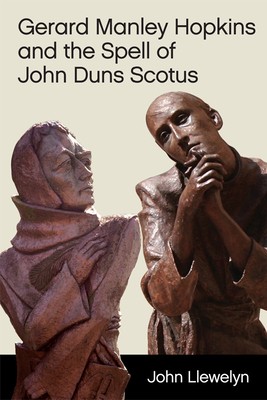
- We will send in 10–14 business days.
- Author: John Llewelyn
- Publisher: Edinburgh University Press
- ISBN-10: 147440894X
- ISBN-13: 9781474408943
- Format: 15.8 x 23.6 x 1.5 cm, kieti viršeliai
- Language: English
- SAVE -10% with code: EXTRA
Gerard Manley Hopkins and the Spell of John Duns Scotus (e-book) (used book) | bookbook.eu
Reviews
Description
The early medieval Scottish philosopher and theologian John Duns Scotus shook traditional doctrines of universality and particularity by arguing for a metaphysics of 'formal distinction'. Hundreds of years later, why did the 19th-century poet and self-styled philosopher Gerard Manley Hopkins find this revolutionary teaching so appealing? John Llewelyn answers this question by casting light on various neologisms introduced by Hopkins and reveals how Hopkins endorses Scotus' claim that being and existence are grounded in doing and willing. Drawing on modern responses to Scotus made by Heidegger, Peirce, Arendt, Leibniz, Hume, Reid, Derrida and Deleuze, Llewelyn's own response shows why it would be a pity to suppose that the rewards of reading Scotus and Hopkins are available only to those who share their theological presuppositions.
EXTRA 10 % discount with code: EXTRA
The promotion ends in 21d.19:51:12
The discount code is valid when purchasing from 10 €. Discounts do not stack.
- Author: John Llewelyn
- Publisher: Edinburgh University Press
- ISBN-10: 147440894X
- ISBN-13: 9781474408943
- Format: 15.8 x 23.6 x 1.5 cm, kieti viršeliai
- Language: English English
The early medieval Scottish philosopher and theologian John Duns Scotus shook traditional doctrines of universality and particularity by arguing for a metaphysics of 'formal distinction'. Hundreds of years later, why did the 19th-century poet and self-styled philosopher Gerard Manley Hopkins find this revolutionary teaching so appealing? John Llewelyn answers this question by casting light on various neologisms introduced by Hopkins and reveals how Hopkins endorses Scotus' claim that being and existence are grounded in doing and willing. Drawing on modern responses to Scotus made by Heidegger, Peirce, Arendt, Leibniz, Hume, Reid, Derrida and Deleuze, Llewelyn's own response shows why it would be a pity to suppose that the rewards of reading Scotus and Hopkins are available only to those who share their theological presuppositions.


Reviews